Retired teacher died after hospital failings
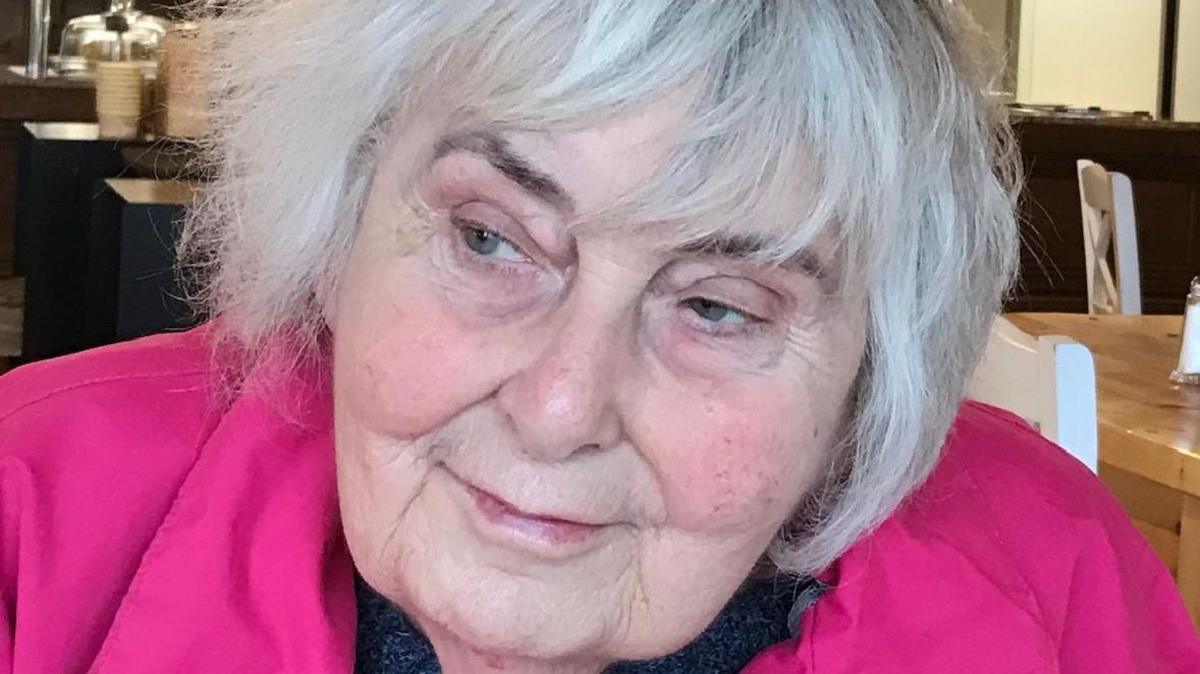
Nesta Jones, 77, died a month after being admitted to hospital with a knee infection
- Published
Orthopaedic doctors "failed to take control" of the care of a retired teacher, who died over a month after being admitted to a north Wales hospital, an inquest has found.
Nesta Jones, 77, was admitted to Ysbyty Gwynedd in Bangor in March 2017, but a knee infection was not correctly diagnosed until May.
The North West Wales Coroner said had the correct treatment started earlier, it was probable Mrs Jones "would not have died when she did".
The Besti Cadwaladr University Health Board said it was "profoundly sorry" and said it has taken actions following the death.
Delivering a narrative conclusion at a hearing in Caernarfon, Coroner Kate Robertson said she would be issuing the health board with a report on preventing future deaths, and also sending it to Welsh government health minister Eluned Morgan.
Her conclusion was critical of the orthopaedic department in the hospital, and she said the "collective standard of care fell below that which was reasonable".
"There was a failure to undertake any meaningful handovers by the orthopaedic department during Nesta's time in hospital," she told the hearing.
"The orthopaedic department failed to take control of the situation or Nesta's care adequately.
"There was no one who took overall responsibility for Nesta's care."
Does this woman have the toughest job in Wales?
- Published5 October 2023
Health board's £200k fine after suicide failings
- Published18 December 2023
Troubled health board's challenges remain - report
- Published15 February 2024
Evidence in the full inquest, which took place in November last year, heard how the former teacher was admitted to hospital after being found confused and in pain by her family doctor at her home at Valley on Anglesey.
The GP suspected she had septic arthritis in a replacement knee joint, and had her admitted to hospital.
However, the orthopaedic team who reviewed her dismissed a knee infection as the reason for her illness.
Over the next month, her daughter Siwsan Jones, who was a registered nurse and clinical lead at an NHS trust, and her husband, a consultant psychiatrist and qualified medical doctor, both made repeated requests for doctors to treat the knee.
Ms Jones said it was "the elephant in the room".
Instead, she said her mother was subjected to a catalogue of invasive investigations, and often left unable to eat or drink.
"It just felt like a bit of a scattergun approach - investigations were just being repeated," Ms Jones told the inquest.
Health board complaints
It led to the couple writing a note to doctors requesting they treat the knee, and carry out a procedure to drain and clean the infection, known as aspiration.
However, they did not receive a response.
On 3 May, 2017, they wrote to the chief executive of the Betsi Cadwaladr health board to complain, demanding urgent action was taken, describing it as a "matter of life or death" for Mrs Jones.
The procedure was carried out on 5 May, where it emerged her knee had been infected as originally suspected by the family and their GP back at the end of March.
But Mrs Jones' condition deteriorated over the next three days and she died in hospital.
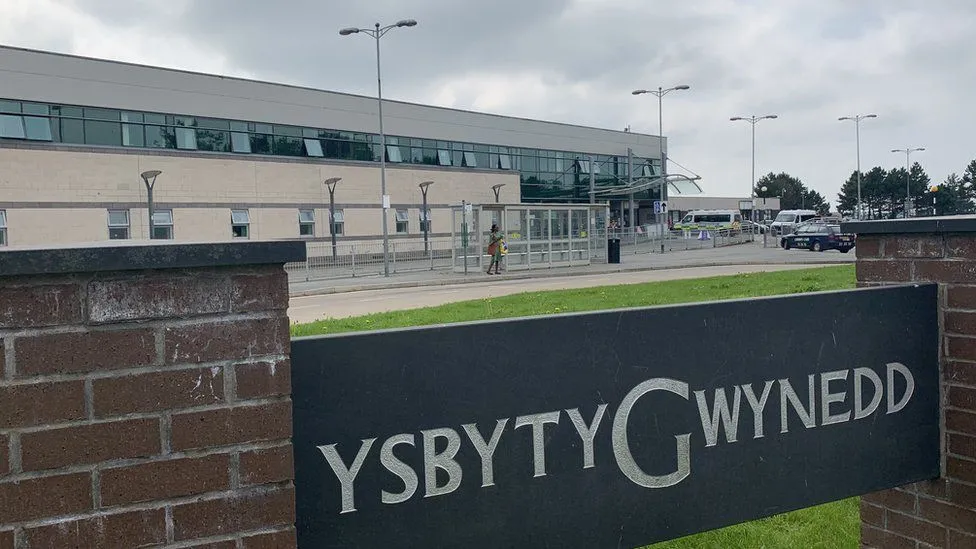
The inquest recorded a cause of death as bronchopneumonia with septic arthritis, as well as a suppressed immune system and rheumatoid arthritis.
The coroner said the evidence did not meet the legal tests to return a conclusion of either unlawful killing or corporate manslaughter, which Mrs Jones' family had asked her to consider.
But Ms Robertson said the health board must now respond to her own concerns about how it investigates deaths and how it deals with complaints, stating there were not "adequate and appropriate systems and processes" in place.
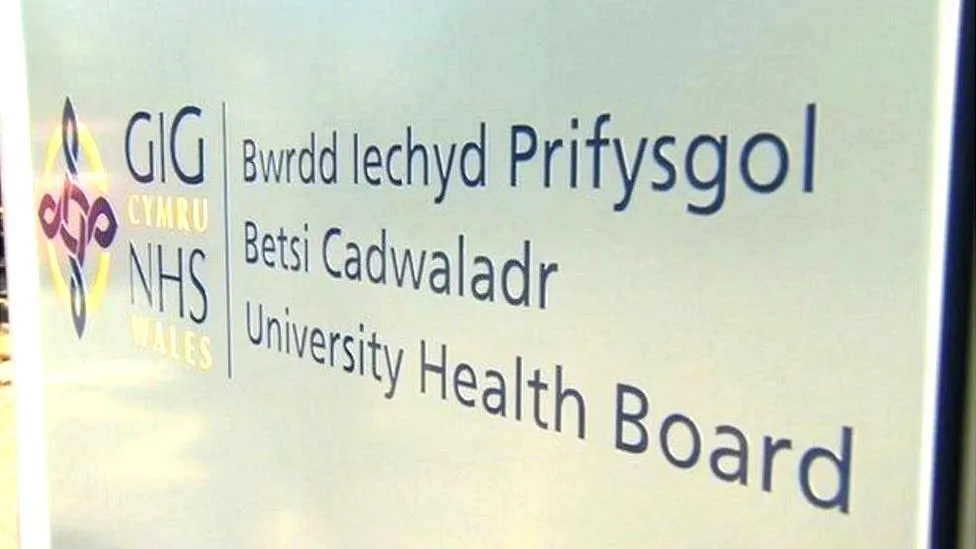
The health board has apologised for its failings in the care of Nesta Jones
Following the inquest, the health board said it had taken a number of actions following Mrs Jones' death.
"On behalf of the health board we are profoundly sorry and offer our deepest sympathies to Nesta’s family for their loss," said executive medical director, Dr Nick Lyons.
"The care Nesta received fell below the standards we and her family would expect, and we apologise for this."
The health board said it had recruited two new orthopaedic consultants at Ysbyty Gwynedd to deal with joint replacement issues and infection.
It said it now also operated a "Call 4 Concern" service where relatives can highlight patient problems independently.
Dr Lyons added: "The health board takes the coroner’s findings very seriously and we will continue to ensure we learn and address the concerns raised in her conclusion."
Related topics
- Published4 December 2023
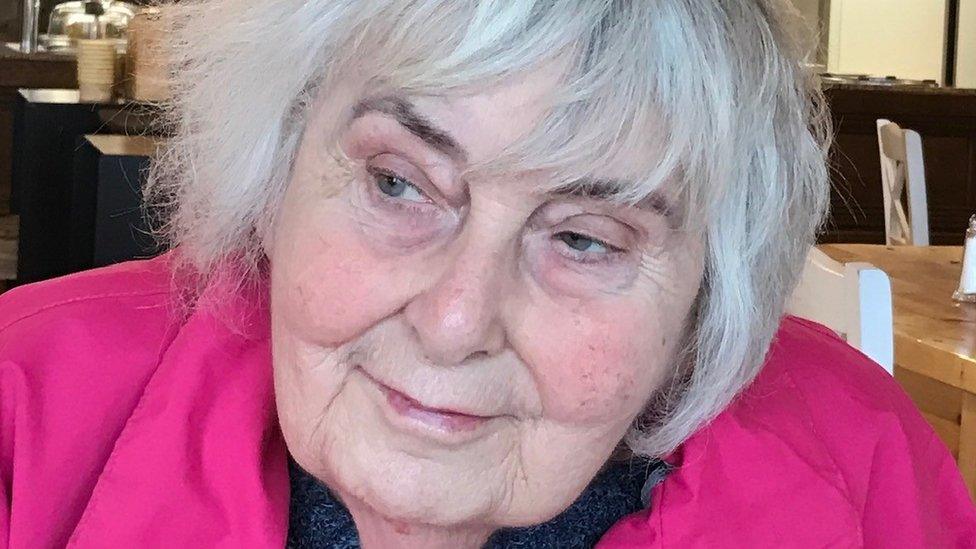
- Published29 November 2023
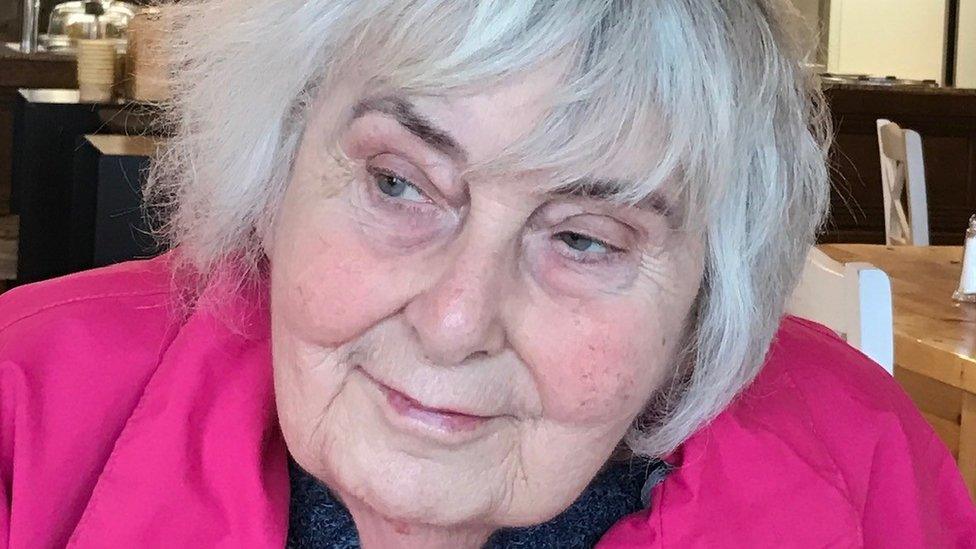
- Published27 November 2023
